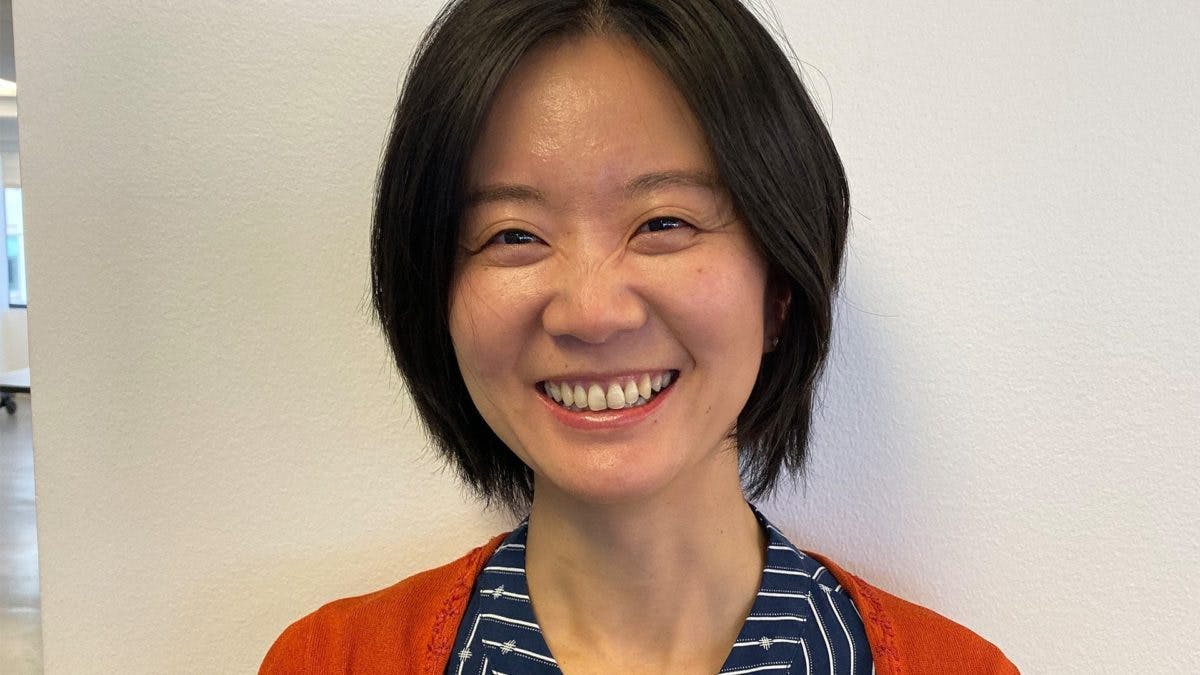Gone Crypto: Why I Left Goldman Sachs for OKCoin
OKCoin’s CEO Hong Fang was drawn to bitcoin as an investment, but more than that, she was enamored with how it started.

Hong Fang, CEO, OKCoin
- Fang, originally from China, spent nearly a decade at Goldman Sachs in the financial institutions group
- Fang eventually joined OKCoin as the chief operating officer and chairman in 2019 and is now CEO
Intuitive by nature, OKCoin’s CEO Hong Fang likes to get to the bottom of things. In her experience, it all comes back to finance.
“I feel like there is an invisible layer to society that actually drives and lays the foundation for prosperity, and that is the finance layer,” said Fang. “It is the free markets layer.”
Fang, originally from China, spent nearly a decade at Goldman Sachs in the financial institutions group. She had the option to join the technology team at Goldman, but ultimately decided on investment banking because of her fascination with the free market.
“I was actually born in the year when China started to open up to the rest of the world,” said Fang. “Through my own personal experience, I’ve seen that the power of free markets is strong, so I’ve always been looking for how exactly things work. The US’s glory, greatness and all that is really built upon the idea of free markets, to be honest.”
A tumble-down time
Fang started at Goldman in 2008. It was the midst of the financial crisis and probably the most interesting time to join the industry, she said.
“Everything was tumbling down, literally,” said Fang. “We were very busy though in 2008, albeit with all these anxieties that you cannot really run away from in the middle of that.”
Goldman, like all other banks at the time, was undercapitalized. Fang worked on a series of capital raises during the recession before moving on to other sectors. She explored asset management and insurance, trying to absorb as much of the broad world of finance that she could.
“In financial institutions, there are different pieces that interact with each other, and I didn’t want to just see one piece,” said Fang. “I ended up doing a lot of different things, like M&A, you name it, all kinds of capital markets and strategic stuff that you can think of, I pretty much did all of that.”
Another thing Fang explored? FinTech. She started to see how technology was playing a role in markets.
“On the one hand, with FinTech companies, there’s a lot of excitement, people are trying to actually use technology to make changes and try to fix what was not working in the current system,” said Fang.
On the other hand, Fang was concerned with what she was seeing. There was a lot of financial engineering in the space, she said.
“What I was really able to see was people moving money from one pocket to another, it was not really getting to where it was actually needed,” said Fang. “It did raise a lot of questions in my mind. I wanted to get excited when I worked on FinTech projects.”
This was in 2016, and Fang was ready to switch gears. She left Goldman to work in growth equity investing at Giant Interactive Group. OKCoin was her first deal.
“I started down the rabbit hole of bitcoin because OKCoin was the first deal I executed as a growth equity investor,” said Fang. “I actually had heard of bitcoin back in 2013 or so from a very brilliant female banker at Goldman, but I was too dumb to pay attention to it then.”
Switching gears
OKCoin got Fang hooked on crypto. She was drawn to bitcoin as an investment, but more than that, she was enamored with how it started. Her whole idea of free markets began to shift.
“It combines free markets and technology innovation, and that’s really what has been driving everything,” said Fang. “The deeper I got into bitcoin, the scarier it became, because then I realized, all the free market speak that I was attracted to was actually not free markets, because when the money is not free, what is free?”
Fang eventually joined OKCoin as the chief operating officer and chairman in 2019. She now serves as CEO. The decision to go full time crypto wasn’t difficult, but Fang could tell that her old colleagues didn’t understand the industry she was so excited about joining.
“Everyone said ‘that’s great, now what exactly is crypto, how does it work?’” said Fang.
Even today, as digital currencies become more and more mainstream, the industry is clouded with misconceptions. Fang understands why people are hesitant, though, and she looks forward to helping change the narrative.
“I don’t think many people understand what bitcoin is to start with, they think of it as something somebody making money out of it,” said Fang. “But the beauty of Bitcoin is that it is actually a network that doesn’t have any third party, any individual organization that can control it that is profiting off it. I think that is the most fundamental difference and it will take some people a lot of time to wrap their mind around that.”
Have your own traditional-finance-gone-crypto story to tell? Email us [email protected].






